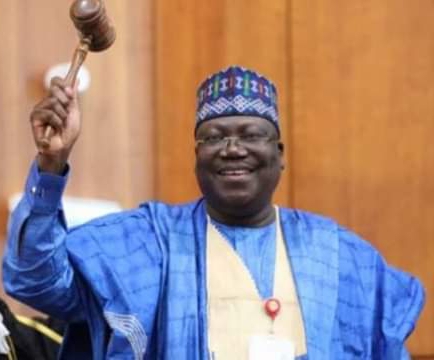
The Senate on Tuesday approved $1.5billion and Euro 995million external loans for the Federal Government.
This followed consideration of the report of the Senate Committee on Local and Foreign Debts on the external borrowing plan of the Federal Government at plenary.
Chairman of the committee, Senator Clifford Ordia, presented the report.
The loans are part of the external borrowing plan of the Federal Government.
The recommendation of the Committee “that the Senate do approve the external borrowing of the sum of $1,500,000,000 and €995,000,000” from the World Bank, Export-Import Bank of Brazil (BNDES) and Deutsche Bank of Germany, was approved by Senators when it was put to voice vote by Senate President Ahmad Lawan.
President Muhammadu Buhari had, in May 2020, asked the Senate to approve the loans to finance various priority projects of the Federal Government as well as support the State Governments facing fiscal challenges.
Senator Ordia explained $1.5billion will be sourced from the World Bank to finance projects of state governments facing fiscal challenges arising from the COVID-19 pandemic.
The projects, according to Ordia, are States Fiscal Transparency, Accountability and Sustainability Programme to provide fiscal support to states (SFTAS) and COVID-19 action recovery and economic stimulus programme to support State-Level efforts to protect livelihoods, ensure food security and stimulate economic activity (N-CARES).
He said €995 million to be sourced from the Export-Import Bank of Brazil is to finance the Federal Government’s Green Imperative Project (GIP) to enhance mechanisation of agriculture and agro-process in Nigeria to improve food security.
Senator Ordia noted the borrowings were largely concessional loans with low interest rates and a reasonable moratorium and payback period.
He said that $750million out of the $1.5billion to be sourced from WB has a grace period of five years, 25 years tenor and an interest rate of 2.45 per cent per annum while the balance $750million also has a grace period of five years, 25 years tenor and an interest rate of 2.5 per cent per annum.
On the GIP component of the loan, Ordia said: “The Committee found that a total of six indigenous assembly plants, one in each geo-political zone have been identified and will be rehabilitated and retooled to assemble completely knocked down (CKD) mechanisation farm machinery and equipment to be imported from Brazil.
“The Committee observed the CKD mechanisation farm machinery and equipment to be imported from Brazil will be specifically adapted for local conditions with job creation opportunities for citizens.
“The Committee observed the loan is intended to be used to deliver technological package to the small holder farmers for a fee through the establishment of service centers in each of the 774 Local Governments of the Federation.
“The Committee further observed that the service centers will be owned and run by private business entities who will be supported to acquire various mechanization tools through favourable borrowing rates from participating commercial banks.”
On the SFTAS aspect of the loan, Chairman of the Committee said: “The Committee observed that there is an ongoing program called States Fiscal Transparency, Accountability and Sustainability (SFTAS) program facility in the sum of $750,000,000 funded by the World Bank currently running in all the States of the Federation and the FCT.
“The Committee notes that the said financing was approved by the National Assembly in June 2020 as part of the $1,500,000,000 Development Policy Financing to part finance FGN 2020 revised budget deficit.
“The Committee found that in October 2020, following the continuous economic disruptions occasioned by the pandemic and in view of the need to consolidate on and sustain the gains of the program and to increase States fiscal capacity to respond to the COVID-19 crises, the above program was restructured and expanded.
“The Committee found that the objective of the restructuring is to support States to introduce measures to further mitigate fiscal shocks by introducing COVID-19 responsive Disbursement
Linked Indicators (DLI) at State Level, to match the fiscal measures at the Federal level and reallocating the undisbursed balance of the program funds towards the new DLI’s.
“The Committee notes that it is based on the above restructuring, the additional financing in the sum of $750,000,000 is now required for the Covid-19 response of Nigeria and same has now been tagged Nigeria SFTAS Additional Financing for Covid-19 response program for result (PforR).”
On the COVID-19 Action recovery and economic stimulus program (CARES), Ordia said: “The Committee notes that the Project Development Objectives (PDO) of the program (CARES) is to expand access to livelihood support and food security services, and grants for poor vulnerable households and firms.”












